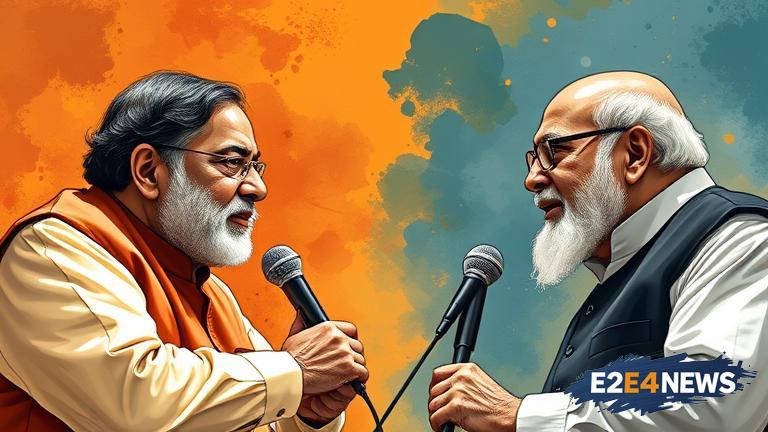The Indian Parliament recently witnessed a intense exchange of words between Congress leader Mallikarjun Kharge and BJP president JP Nadda. The confrontation began when Kharge questioned who was running the Rajya Sabha, implying that the ruling party was exerting undue influence over the upper house. Nadda hit back, advising the Congress leader to learn how to be an effective opposition. The BJP president’s response was seen as a jab at the Congress party’s inability to pose a strong challenge to the ruling party. Kharge, however, remained defiant, stating that the Congress would continue to raise important issues and hold the government accountable. The war of words between the two leaders has sparked a debate on the role of the opposition in Parliament. Many have argued that a strong opposition is essential for a healthy democracy, as it provides a check on the powers of the ruling party. Others have countered that the opposition must also be constructive and offer alternative solutions, rather than simply criticizing the government. The exchange between Kharge and Nadda has also highlighted the growing tensions between the Congress and the BJP. The two parties have been at odds over a range of issues, including the government’s handling of the economy and its response to the COVID-19 pandemic. The Congress has accused the BJP of attempting to undermine the opposition and stifle dissent, while the BJP has countered that the Congress is trying to destabilize the government. The confrontation in Parliament has also raised questions about the effectiveness of the opposition in holding the government accountable. Many have argued that the opposition must be more proactive in raising important issues and pushing for reforms. Others have suggested that the opposition must also be more strategic in its approach, using a range of tactics to pressure the government into taking action. The debate over the role of the opposition is likely to continue in the coming days and weeks, with the Congress and the BJP engaging in a war of words over a range of issues. The government has also faced criticism from other opposition parties, including the Trinamool Congress and the DMK. These parties have accused the government of attempting to undermine the federal structure of the country and impose its will on the states. The opposition has also raised concerns about the government’s handling of key issues, including the economy, healthcare, and education. The government has countered that it is working to address these issues and improve the lives of citizens. The debate over the role of the opposition is an important one, as it goes to the heart of the country’s democratic system. A strong and effective opposition is essential for ensuring that the government is accountable to the people and that the rights of citizens are protected. The confrontation between Kharge and Nadda has highlighted the importance of this debate and the need for a constructive and respectful dialogue between the government and the opposition. The Indian Parliament is a vital institution in the country’s democratic system, and it is essential that it functions effectively to represent the interests of citizens. The opposition has a critical role to play in this process, and it must be proactive in raising important issues and holding the government accountable. The government, on the other hand, must be willing to listen to the opposition and work with it to address the key challenges facing the country. Only through a collaborative and constructive approach can the government and the opposition work together to build a better future for India. The country is facing a range of challenges, from economic growth and development to healthcare and education. The government and the opposition must work together to address these challenges and ensure that the country is able to achieve its full potential. The debate over the role of the opposition is an important one, and it is likely to continue in the coming days and weeks. The country will be watching with interest as the government and the opposition engage in a war of words over a range of issues. The outcome of this debate will have important implications for the country’s democratic system and its ability to address the key challenges facing it.





